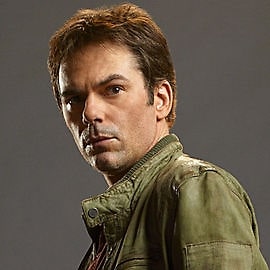By Mia Lupo-
Revolution, which aired Monday September 17th at 10:00pm on NBC, was advertised as a promising new show—the series is directed by Jon Favreau (Iron Man), created by Eric Kripke (Supernatural) and produced by J.J. Abrams (Lost). The logical assumption would be to predict that such collaboration would craft an intriguing, thought-provoking television experience.
The pilot episode of Revolution can be summarized in six words: Blackout. Dystopia. Chaos. Murder. Loss. Quest.
This description captures the straightforward plot, shallow character development, and high level of predictability. Had I known that the four-minute trailer included the most important scenes—the only scenes worth paying attention to—I would have skipped sitting through the hour-long premiere in favor of catching some much needed sleep.
Revolution takes place fifteen years after “The Blackout,” a worldwide power outage. Every modern convenience we take for granted today—laptops, iPhones, refrigerators, modes of transportation—has stopped working. The series follows Charlotte “Charlie” Matheson on her search to find her uncle, Miles, in Chicago and then find her brother Danny, who was kidnapped by General Monroe’s ruling militia.
There are several things about Revolution that I struggle to overlook or accept.
For whatever reason, the dynamic between Charlie and Miles reminds me of Bella Swan and her father, Charlie Swan, of the Twilight saga. In truth, at some points during Revolution, I thought I was watching Charlie Swan load his shotgun or Bella having one of her angst-ridden fits. This may be attributed to the fact that the actor who plays Miles Matheson, Billy Burke, did also play Charlie Swan in the Twilight saga. Miles’ in Revolution and Charlie Swan seem to share a similar subtle humor and roughness. Charlie in Revolution possesses the same exaggerated, dramatic dialogue and the same emotional instability as Twilight’s heroine, Bella.
It is also hard to dismiss the multiple references to Lost, J.J. Abrams’ previous television series, about the life of plane crash survivors on a mysterious island somewhere in the South Pacific.
The trailer for Revolution shows a plane crashing when the blackout begins, as well as the group of characters walking towards an abandoned plane on an airport runway. The obvious Lost reference served as a lure for diehard Lost fans to watch J.J. Abrams’ new project.
It is as if Abrams employed Lost as a crutch to support Revolution, but it is possible that the effect backfired. It would have been nice to not include such details in the trailer so the audience can try to associate Abrams with other works independent from Lost.
Even the theme of a living in a post-apocalyptic under a suppressive force undermines the originality of Revolution, because those are two of the central conflicts in Lost.
Perhaps if Revolution was not produced by J.J. Abrams, the show would not have been held to such a high intellectual standard—Lost set the precedent for original, groundbreaking shows that encouraged conversations extended from political philosophy to literary symbolism. As a Lost fan, I was disappointed to find that Revolution did not make a stronger attempt to challenge the audience’s imagination. There was not much left to imagine except for the obvious question: Why did the power go out? In comparison to Lost, nothing in during the pilot struck me as original.
Likening Revolution to Lost in the trailer was too good to be true.
NBC is cancelling 30 Rock, Community, and Parks and Recreation—three shows that rely on ironic, yet informed, humor. Although they may appear to be low-brow television shows, strong cast members and the clever use of pop cultural references suggest otherwise. It could be possible that NBC seeks to attract a larger audience outside the scope of the patient and more educated viewers. In doing so, the network is willing to sacrifice the value of narrative depth for a higher number of viewers.
The pilot episode of Revolution suggests that collaboration between award-winning executives does not necessarily yield results worthy of their status. Hopefully the series will grow into its own form, as opposed to borrowing devices from past successful television shows. Even more so, hopefully Charlie and Miles develop their character to something beyond the level of a teen vampire flick.
Revolution airs on NBC, Mondays at 10:00pm.















